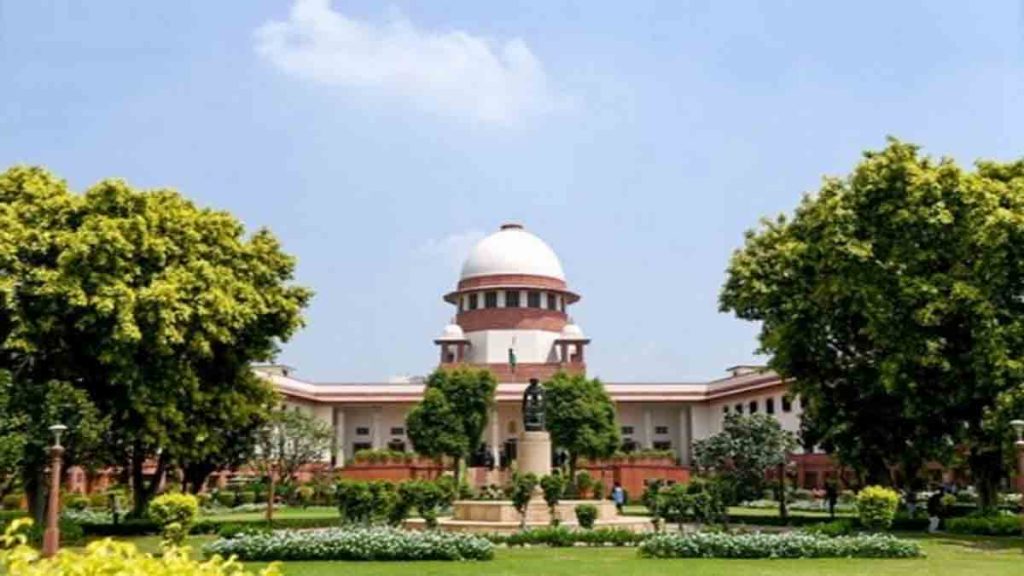Supreme Court questions TN Governor

New Delhi (ANI): The Supreme Court on Monday questioned the Tamil Nadu Governor over the delay in disposal of various pending bills.
A three-judge bench headed by Chief Justice of India DY Chandrachud, hearing the Tamil Nadu government’s petition, asked the reason for the delay.
The court said that the Governor had disposed of various bills on November 13.
The top court expressed its concern by noting that the bills were pending since January 2020 and were cleared after the top court passed the order on November 10.
“It means the Governor took the decision after the court issued a notice. What was the Governor doing for three years?” The court said.
“Why should the Governor wait for the parties to approach the Supreme Court,” the court asked.
Attorney General R Venkataramani clarified that the current Governor has assumed office in November 2021. But the top court was not satisfied with his argument.
The court adjourned the case till 1 December when it was informed that the Assembly had again passed the ten bills in a special session on 18 November.
Senior lawyers Mukul Rohatgi and Abhishek Manu Singhvi, appearing for the state of Tamil Nadu, informed the bench about such facts.
All the 12 bills mentioned in the writ petition have been disposed of on November 13. (Out of these 12 bills, consent has been withheld on 10 bills and 2 bills have been reserved for the consideration of the President.)
On November 18, 2023, a special session of the Tamil Nadu Assembly was held and 10 bills on which the Governor had withheld assent were reconsidered and passed in the Assembly.
All 10 bills have been sent by the state government to the Governor’s Secretariat on November 18.
On proposals relating to appointment of members of Tamil Nadu Public Service
Commission, the Governor said that he has observed that there is no transparency in the entire selection process and further, he has found that the person who is to be appointed as the Chairman should have less than one year in office when appointed. will be.
However, it may be noted that the Governor has approved all other proposals
The note said, appointment has been received from the government.
The Supreme Court also said that the issues raised in the petition are extremely worrying.
The Tamil Nadu government has moved the Supreme Court to issue directions to the Governor to deposit the bills and various files sent by the Tamil Nadu Assembly and the government pending in his office within a specified time limit.
In the petition, the TN government has sought to direct the Governor to dispose of all bills, files and government orders sent by the Tamil Nadu Legislative Assembly and the government, which are pending in his office, within a specified time limit.
This petition has been filed through an advocate Sabreesh Subramaniam.
The petition seeks a declaration that the inaction, omission, delay and failure to comply with the constitutional mandate by the Governor of Tamil Nadu/1st respondent merits consideration and assent to the Bills passed and forwarded by the Tamil Nadu State Legislature. Not considering the files, government orders and policies sent by the state government for his signature is unconstitutional, illegal, arbitrary, unfair as well as a malicious exercise of power.
Governor approves prosecution of ministers, MLAs involved in corruption by not signing exemption orders, everyday files, appointment orders, approving recruitment orders, including transfer of investigation to CBI by Supreme Court, passed by Tamil Nadu Legislature Bills are included. The Tamil Nadu government said, “The Assembly is paralyzing the entire administration and creating an adversarial attitude by not cooperating with the state administration.”
Whereby the State Government, in the light of the recommendations of the Sarkaria Commission, sought to issue instructions to fix external time limit for the first respondent Governor to consider the Bills passed by the Legislature and sent for assent under Article 200 of the Constitution. of.
“The refusal to act on the aid and advice of the Council of Ministers or the willful inaction on the part of the Governor in acting on the Bills or files, including any delay, will defeat parliamentary democracy and the will of the people and result in the Constitution,” the petition said. It is a violation of its basic structure.”
The State Government said that the present writ petition addresses the specific issue that the Tamil Nadu Government and the Legislative Assembly are facing with such amendments or changes as they deem appropriate.
“If, on such reconsideration, the Bill is again passed with or without amendments, and presented to the Governor for assent, he shall have to give his assent. The second provision states that if in the opinion of the Governor, any Bill is introduced which, the petition states, abridges the powers of the High Court, thereby jeopardizing the position created by the Constitution to be filled by the High Court, However, he is bound to reserve the Bill for the consideration of the President.
The TN government said that by refusing to grant sanction when the investigating authorities have found prima facie evidence of corruption and have sought permission to prosecute, the first respondent Governor is engaging in politically motivated conduct. In this the CBI
Senior lawyers Mukul Rohatgi and Abhishek Manu Singhvi, appearing for the state of Tamil Nadu, informed the bench about such facts.
All the 12 bills mentioned in the writ petition have been disposed of on November 13. (Out of these 12 bills, consent has been withheld on 10 bills and 2 bills have been reserved for the consideration of the President.)
On November 18, 2023, a special session of the Tamil Nadu Assembly was held and 10 bills on which the Governor had withheld assent were reconsidered and passed in the Assembly.
All 10 bills have been sent by the state government to the Governor’s Secretariat on November 18.
On proposals relating to appointment of members of Tamil Nadu Public Service
Commission, the Governor said that he has observed that there is no transparency in the entire selection process and further, he has found that the person who is to be appointed as the Chairman should have less than one year in office when appointed. will be.
However, it may be noted that the Governor has approved all other proposals
The note said, appointment has been received from the government.
The Supreme Court also said that the issues raised in the petition are extremely worrying.
The Tamil Nadu government has moved the Supreme Court to issue directions to the Governor to deposit the bills and various files sent by the Tamil Nadu Assembly and the government pending in his office within a specified time limit.
In the petition, the TN government has sought to direct the Governor to dispose of all bills, files and government orders sent by the Tamil Nadu Legislative Assembly and the government, which are pending in his office, within a specified time limit.
This petition has been filed through an advocate Sabreesh Subramaniam.
The petition seeks a declaration that the inaction, omission, delay and failure to comply with the constitutional mandate by the Governor of Tamil Nadu/1st respondent merits consideration and assent to the Bills passed and forwarded by the Tamil Nadu State Legislature. Not considering the files, government orders and policies sent by the state government for his signature is unconstitutional, illegal, arbitrary, unfair as well as a malicious exercise of power.
Governor approves prosecution of ministers, MLAs involved in corruption by not signing exemption orders, everyday files, appointment orders, approving recruitment orders, including transfer of investigation to CBI by Supreme Court, passed by Tamil Nadu Legislature Bills are included. The Tamil Nadu government said, “The Assembly is paralyzing the entire administration and creating an adversarial attitude by not cooperating with the state administration.”
Whereby the State Government, in the light of the recommendations of the Sarkaria Commission, sought to issue instructions to fix external time limit for the first respondent Governor to consider the Bills passed by the Legislature and sent for assent under Article 200 of the Constitution. of.
“The refusal to act on the aid and advice of the Council of Ministers or the willful inaction on the part of the Governor in acting on the Bills or files, including any delay, will defeat parliamentary democracy and the will of the people and result in the Constitution,” the petition said. It is a violation of its basic structure.”
The State Government said that the present writ petition addresses the specific issue that the Tamil Nadu Government and the Legislative Assembly are facing with such amendments or changes as they deem appropriate.
“If, on such reconsideration, the Bill is again passed with or without amendments, and presented to the Governor for assent, he shall have to give his assent. The second provision states that if in the opinion of the Governor, any Bill is introduced which, the petition states, takes away the powers of the High Court, thereby endangering the position created by the Constitution to be filled by the High Court. However, he is bound to reserve the Bill for the consideration of the President.
The TN government said that by refusing to grant sanction when the investigating authorities have found prima facie evidence of corruption and have sought permission to prosecute, the first respondent Governor is engaging in politically motivated conduct. This also includes the CBI investigation which has been sanctioned by this Court and which was ordered by the Madras High Court.
“The Governor’s inaction has created a constitutional impasse between the constitutional head of the state and the elected government of the state and by not acting on his constitutional functions, the Governor is playing with the mandate of the citizens,” the state government said.
Therefore, the State Government, in the light of the recommendations of the Sarkaria Commission, has issued appropriate guidelines prescribing external time limits for the first respondent to consider the Bills passed by the Legislature and sent for assent under Article 200 of the Constitution. Has demanded. ,
It also sought to issue guidelines setting out external time limits for the first respondent to consider files, policies and government orders sent for signature in the discharge of his constitutional functions. (ANI)
















